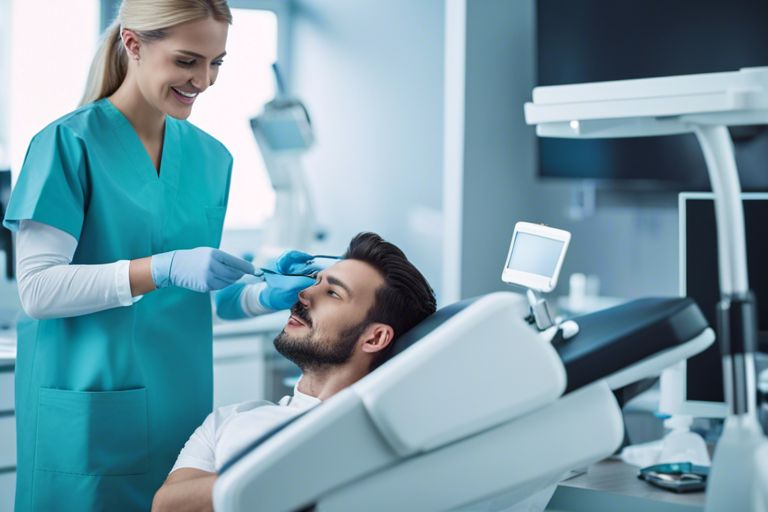Overseeing the intricate realm of oral health, a Doctorate of Oral Pathology (D.O.P.) examines into the thorough study of diseases affecting the mouth and jaw. This advanced level of education and specialization equips professionals with the expertise to diagnose and treat oral conditions, paving the way for advancements in dental healthcare. Let’s uncover the details of pursuing a D.O.P. program and the crucial role these specialists play in maintaining oral health.

Key Takeaways:
- Advanced Study: Doctorate of Oral Pathology (D.O.P.) involves advanced study in the field of oral pathology, focusing on the diagnosis and management of diseases affecting the oral cavity.
- Research Opportunities: D.O.P. programs offer research opportunities to explore cutting-edge technologies and advancements in the field of oral pathology, contributing to the advancement of dental healthcare.
- Career Options: Graduates with a D.O.P. degree have various career options, including academic teaching, clinical practice, research, and consultancy in oral healthcare settings.
Overview of the Doctorate of Oral Pathology Program
Program Structure and Duration
With a focus on the study of diseases affecting the oral cavity and surrounding areas, the Doctorate of Oral Pathology program is designed to provide students with a comprehensive understanding of oral health and pathology. This rigorous program typically spans over three to four years, during which students engage in intensive coursework, research, and practical training.
Admission Requirements and Eligibility Criteria
To secure admission into the Doctorate of Oral Pathology program, candidates are typically required to hold a Bachelor’s degree in dentistry or a related field. Additionally, applicants must demonstrate a strong academic record, relevant research experience, and a passion for advancing the field of oral pathology.
This program may also require applicants to submit letters of recommendation, a statement of purpose, and to pass a written entrance examination. Meeting these stringent admission requirements ensures that only the most qualified candidates are selected for this specialized program.

Core Curriculum and Areas of Study
Fundamental Concepts in Oral Pathology
One of the cornerstones of the Doctorate of Oral Pathology program is the in-depth study of fundamental concepts in oral pathology. Students will learn about the basic principles underlying the development and progression of oral diseases, including the recognition and interpretation of tissue changes associated with various conditions.
Advanced Diagnostic Techniques and Tools
Students in the Doctorate of Oral Pathology program will also research into advanced diagnostic techniques and tools used in the field. These technologies play a crucial role in accurately identifying and diagnosing oral diseases, guiding treatment decisions, and monitoring disease progression.
- Techniques
1. Digital Imaging 2. Histopathological Analysis 3. Molecular Diagnostics 4. Immunohistochemistry
Students will gain hands-on experience with cutting-edge techniques such as digital imaging, histopathological analysis, molecular diagnostics, and immunohistochemistry. These tools are imperative for accurate diagnosis and treatment planning in oral pathology.
Areas of Study
The curriculum of the Doctorate of Oral Pathology program includes comprehensive study in various areas such as:
- Pathogenesis of Oral Diseases
1. Inflammatory Conditions 2. Neoplastic Diseases 3. Genetic Disorders 4. Infectious Diseases

Research Opportunities and Dissertation
Current Research Trends in Oral Pathology
For aspiring oral pathologists, staying updated on current research trends is crucial. Research topics such as molecular pathology, biomarkers for oral cancer, and personalized medicine in oral health are gaining momentum. Keeping abreast of these trends can help shape your research interests and contribute to the advancement of the field.
Planning and Conducting a Research Project
An vital aspect of earning a Doctorate of Oral Pathology is the successful planning and execution of a research project. This involves identifying a research question, conducting a literature review, designing methodology, collecting data, and analyzing results. Seek guidance from faculty mentors and utilize available resources to ensure a robust and well-executed research project.
To excel in planning and conducting a research project, students should also focus on developing skills in data interpretation, critical thinking, and scientific writing. Clear communication of research findings through publications and presentations is key to disseminating knowledge and contributing to the field of oral pathology. Collaborating with colleagues and attending conferences can further enhance research skills and open doors to new opportunities in academia and beyond.
Career Prospects and Further Education
Career Opportunities Post-Graduation
Opportunities in oral pathology after earning a Doctorate degree include roles in academia, research, diagnostic laboratories, and private practice. Graduates can work as oral pathologists, researchers, educators, or consultants in hospitals or dental institutions. The demand for oral pathologists is steadily growing, offering a range of exciting career paths for graduates.
Continuing Education and Specialization Options
Education beyond the Doctorate of Oral Pathology opens up avenues for specialization in areas like maxillofacial pathology, forensics, or molecular pathology. Pursuing fellowships, certifications, or continuing education courses can enhance expertise and career prospects. It allows individuals to widen their scope of practice and stay updated with the latest advancements in the field.
With rapid advancements in technology and research, continuing education is crucial for staying competitive in the field of oral pathology. Specialization options enable professionals to examine deeper into specific areas of interest, contributing to their expertise and credibility within the industry.
Summing up
The Doctorate of Oral Pathology (D.O.P.) is a specialized field that focuses on studying and diagnosing diseases affecting the oral cavity. Through in-depth research and clinical experience, oral pathologists play a critical role in identifying and treating various oral diseases. Pursuing a D.O.P. not only expands knowledge in the field of dentistry but also contributes to advancing oral healthcare practices and patient well-being. It is a prestigious qualification that opens pathways to a rewarding career in academia, research, or specialized clinical practice.
FAQ
Q: What is Doctorate of Oral Pathology (D.O.P.)?
A: Doctorate of Oral Pathology (D.O.P.) is an advanced professional degree focusing on the study of diseases affecting the mouth, jaws, and related structures. It involves in-depth research, diagnostic skills, and specialized knowledge in oral pathology.
Q: What are the career opportunities after completing a Doctorate of Oral Pathology (D.O.P.)?
A: Graduates with a Doctorate of Oral Pathology (D.O.P.) degree can pursue various career paths in academia, research institutions, hospitals, and private practice. They can work as oral pathologists, research scientists, educators, or consultants in the field of oral and maxillofacial pathology.
Q: How long does it take to complete a Doctorate of Oral Pathology (D.O.P.) program?
A: The duration of a Doctorate of Oral Pathology (D.O.P.) program typically ranges from 3 to 5 years, depending on the specific curriculum, research requirements, and individual progress. Students are required to complete coursework, clinical rotations, and a research dissertation to earn the degree.

